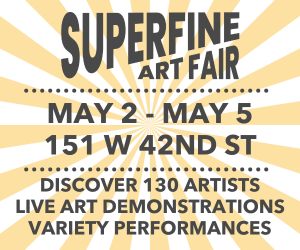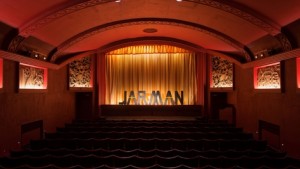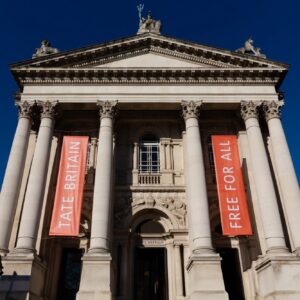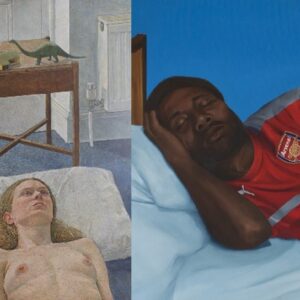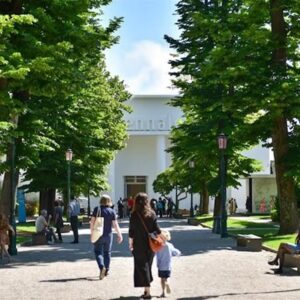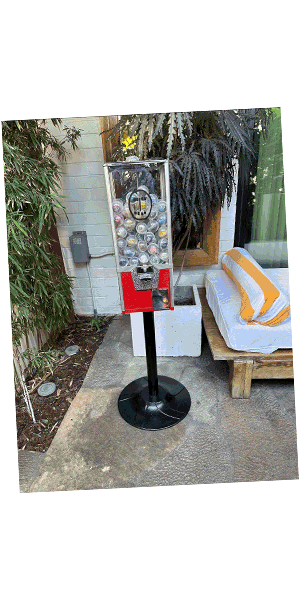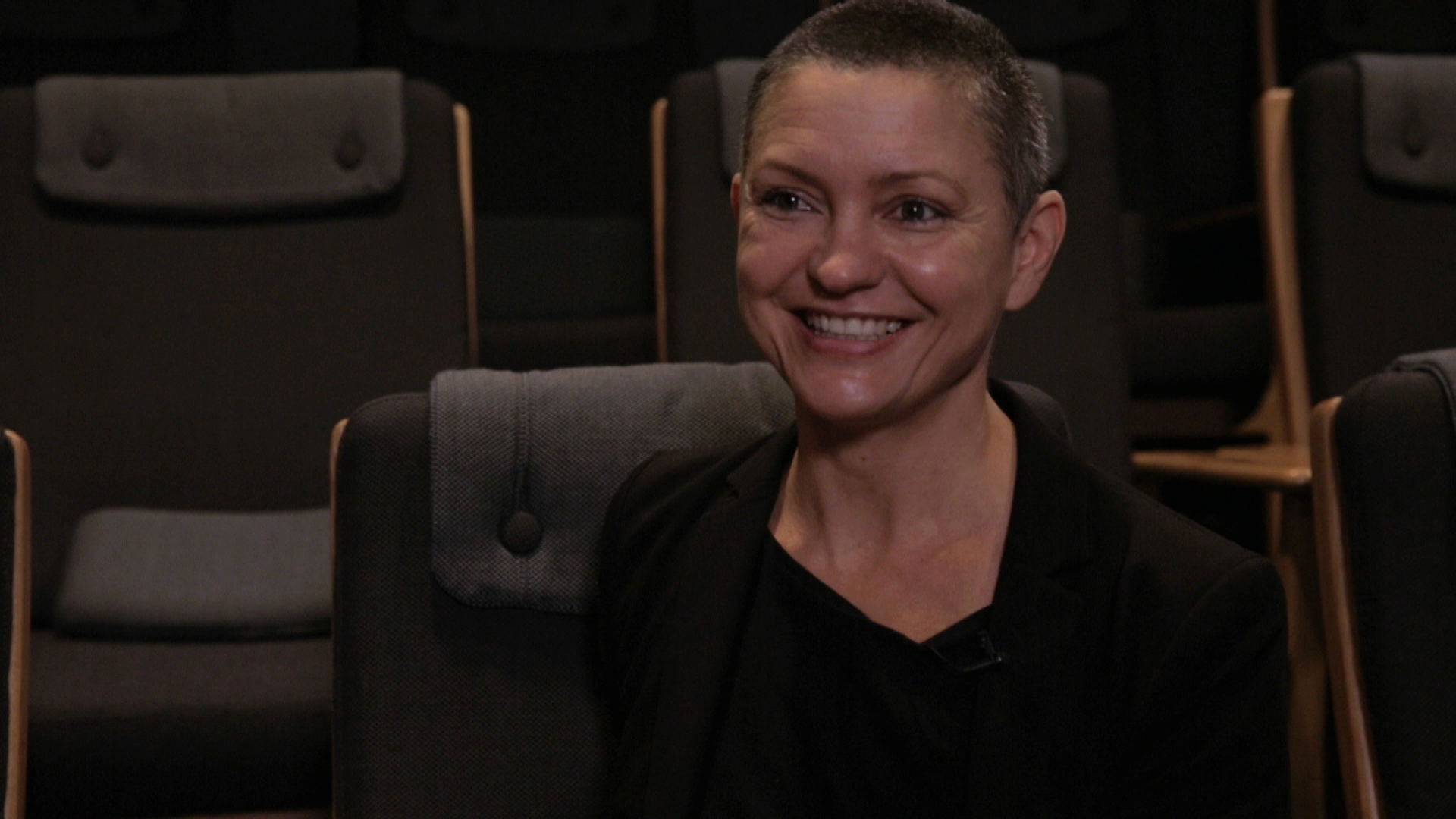
Filmmaker and cultural activist Andrea Luka Zimmerman’s latest film, Civil Rites, was commissioned as part of Newcastle’s ‘Freedom City 2017’ – a series of events marking the fifty year anniversary of Dr Martin Luther King’s speech at the university to mark his receipt of an honorary doctorate. Taking King’s speech as a starting point rather than a straightforward subject, the film features testimony from current activists and Newcastle residents, while also visiting some key locations that mark the city’s historical and contemporary sites of resistance.
Helena Haimes spoke to the artist about how she wove King’s legacy into the work, the importance of activists of many stripes supporting each other and how her own horror at the UK’s current state of affairs spurred her to make the film.
Helena Haimes: The Tyneside Cinema commission specified that you make work around Dr Martin Luther King’s speech at Newcastle University. It’s part of the city’s Freedom City programme celebrating fifty years since Dr King’s speech ….
Andrea Luka Zimmerman: Yes, but it was very open, so I could have done something with absolutely no direct relationship to King. But I think it was really interesting because you have this event at the University in 1967, you start looking at the speech and the people who were there and why he was invited to the university at that moment. Now a book has come out by Brian Ward that’s exploring all this.
I wanted to not necessarily make sense of why he was invited by this particular university at that moment, but to think more “well, that moment existed. He came to the university to give a speech about what he was experiencing in the United States and also globally, and so we’re all implicated within the global system that made that struggle necessary.”
HH: The film really oscillates between very personal anecdotes – though you selected those that have clear broader implications, as well as much more declarative statements challenging how we see the world – reflecting on how little impact the legacy of King has really had on the diversity of the staff and student body at Newcastle University, for example.
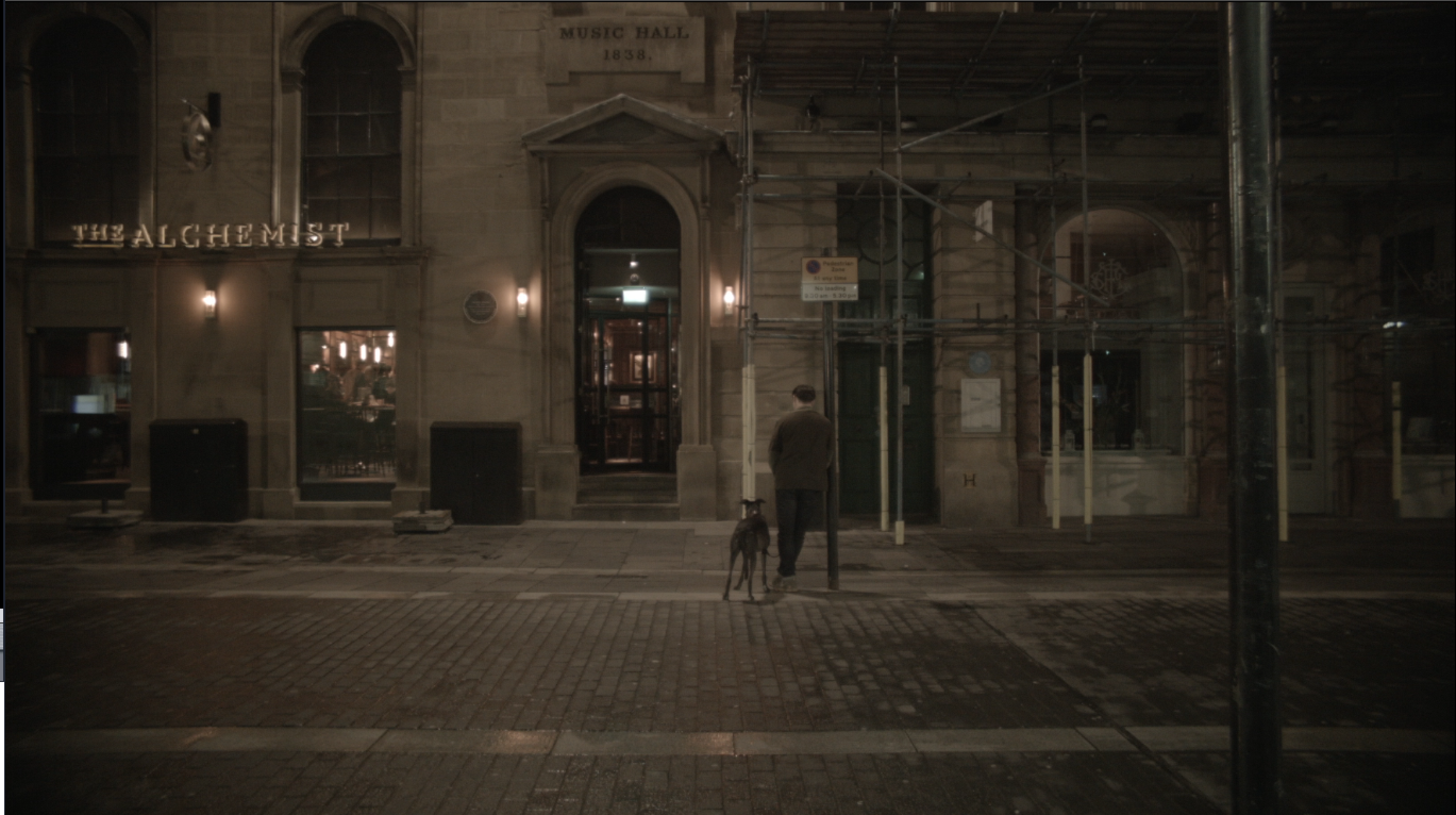
How long did you spend in Newcastle?
There was an concentrated research period for a few months, but then I spent two weeks filming in Newcastle. It was intense, we’d start at 5am every day…
Civil Rites tackles the broad relevance of a lot of what King’s speech brought up and King in general. Something that sprung to mind though, is that as a white woman making a film inspired by black struggle, how did you consider your own position as author?
Of course I thought about this stuff before I agreed to take the commission, but I don’t take it solely from the position of black struggle at all. It’s all about what my responsibility is in the world that needs to be made in a way that we all fit into it. And I feel like….you know King, especially the Birmingham speech, has been very influential for me in relation to another film I’ve been making [Zimmerman . So initially I thought “Why are they asking me?!”
Yes, I read that it was apparently quite an effort for King to come and give the speech in the first place….
And you know, for example, the abolitionist movement here (in Newcastle) was massive and I think in the film what I was trying to get at was the existence of all these allegiances – right from the beginning to make a better world, a different world. We always narrate something through the lens of how it’s almost impossible to participate in another person’s struggle and I think we have to find allegiances to go along with our own struggle. For example, for me, it’s about the invisibility of class because of how I grew up, but that doesn’t mean I can’t enter someone else’s life and someone else’s pathway and try to campaign for a world that’s for all of us.
I guess if all filmmakers confined themselves to making work purely about their own struggles – however you define those struggles – we’d be in trouble…
I think it’s really important to move forward with these allegiances. Not being open enough to allegiances is one of the biggest criticisms of feminism, for example, which because of my own history I’ve been heavily involved in.… It’s about allegiances and seeing each other. So in terms of the film, if I understand your question correctly, if I’d made a film with only black people’s voices, it wouldn’t have been the same at all….
Yes, that’s a very striking and conscious decision you made, to not use participants’ faces…
The reason there are no faces is because people always want leadership or they desire leadership, or they want someone who they can think ‘yes, I agree with this and I want to go along with you’ and I think we have to make our own choices now, and leave these gaps that allow us to do that. This is the first film I’ve made with no footage of people in it, I really work with faces, my whole practice is based around deep relationships with people.
Yes, I saw Estate, A Reverie (2015)… I think your decision to use only voices was a really acute one – it was probably the only choice you could have made in order to have made such an impactful piece of work.
Why do you think now is such an urgent moment to make a film like this?
I remember when I was a student in the 90s (Zimmerman moved to London from her native Germany in 1991), we were so politically active – we’d chain ourselves to library fences, we’d demand all sorts of changes – and I feel like there’s a moment now where the atmosphere is becoming more political than it’s been for a long time. Whereas then, there was so much violence, so much gay bashing, I had friends dying of HIV and AIDS still – people would refuse to even touch them. It was horrendous, people can’t imagine anymore.
When I first moved to London, the BNP was still leafleting there, and we’d protest them by surrounding and circling. So there was a moment of real turbulence, but then it got really sleepy for a long time. Now there’s a crisis I think, we have a moment where people are voicing and naming things, and people are standing up for stuff but at the same time we have such incredible poverty in the UK that we’ve not seen in our lifetime. It’s absolutely outrageous and gross and disgusting and terrifying and sad that we as this country have this and I just don’t know how to make sense of it, I don’t know what to do.
For me, I go to demonstrations and I do all sorts of other stuff but it’s not just about this, it’s about working with imagination to refuse that image that is made by these conditions somehow, and for me art is about opening up conversations. I feel like we’re in a really difficult moment where on the one hand we can name things, maybe this is a really welcome cultural shift, but at the same time it’s got worse and worse economically in relation to individuals.
The number of homeless people now – here in Newcastle it’s horrendous, in London it’s horrendous. I’m working on a book with a young woman who’s an artist now but used to be homeless, it’s got interviews with homeless women in it and commissioned essays. It’s horrifying how we’re not looking after people…
There’s so many gaps in the net that people can all too easily slip through. The power for me is in the montage and these connections you create between historical struggles going back to 1633 and, for example, the Tyneside man who’d had his benefits sanctioned so extensively that he couldn’t even afford to go into town and look for work. Ongoing injustices. How would you characterise the potential of a work like this?
I really want to emphasise because of your earlier question that this isn’t a film where I’m looking at or trying to participate in a struggle that’s not related to me directly. It’s related to me as somebody who’s in a position, not just me personally but I’m part of a system that represses people. That’s my struggle, I want to refuse publicly to be part of this system I’m a part of. It’s a constant negotiation of that system and that space, it’s like the anti-fascist movement in Germany. We don’t have enough memory of the people who stood up against this in the past, and this is our heritage. This is why I wanted to go back to the 1600s in order to make the point that we’re not alone in this, that there have always been different iterations, that we’re all in this together, there have always been people who’ve refused to toe the line. These allegiances are crucial for me.
This film also shows that these amazing people – Pat who’s made the Roots and Bootstraps board game and is also in the film or Penny who’s lent us some of her protest poster collection to hang in the lobby – these amazing women who’ve had their own struggles and exclusions and have tried to figure out a way that’s not just for them alone but also for each other. For me, where the poetry exists is in understanding where the condition exists where we can see the gentleness of human lives rather than just always the antagonisms. And what antagonism that’s there ought to be used against the system…
That sounds very much in the spirit of King…
Also, that’s why I invited voices critical of the film itself into the film. I wondered why we have one monument that we’ve been so quick to forget and then it’s re-remembered, who does this memory serve? Why do we remember?
Absolutely. There’s a huge amount of reflexivity built into it, you obviously think about it from all these angles. How much of a process was finding the interviewees?
I did a lot of research beforehand to find people to use as starting points. So I knew I wanted to include Brian Ward, Paul Barry, and I also knew I wanted to have many women’s voices. I also wanted voices that are able to talk about their own experiences as activists, be they homed or not homed, British citizens or those from abroad who live here (though for me, if you live somewhere, that’s your home)…So I was consciously looking for different voices, a mix of men and women. I wanted more women than men because so much of history is dominated by men. There was so much more I could have put in it if I’d made a longer work.
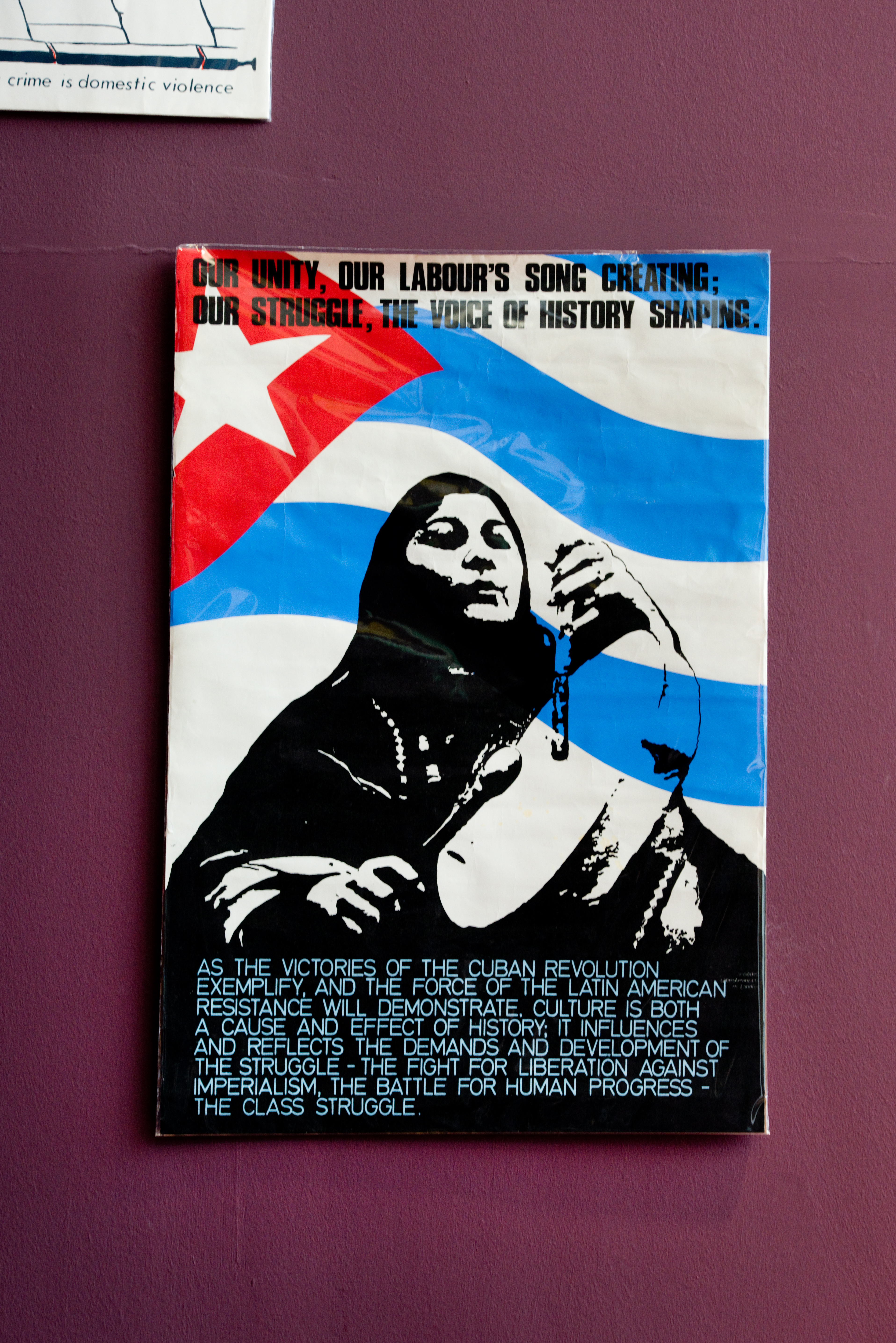
©: Colin Davison www.rosellastudios.com
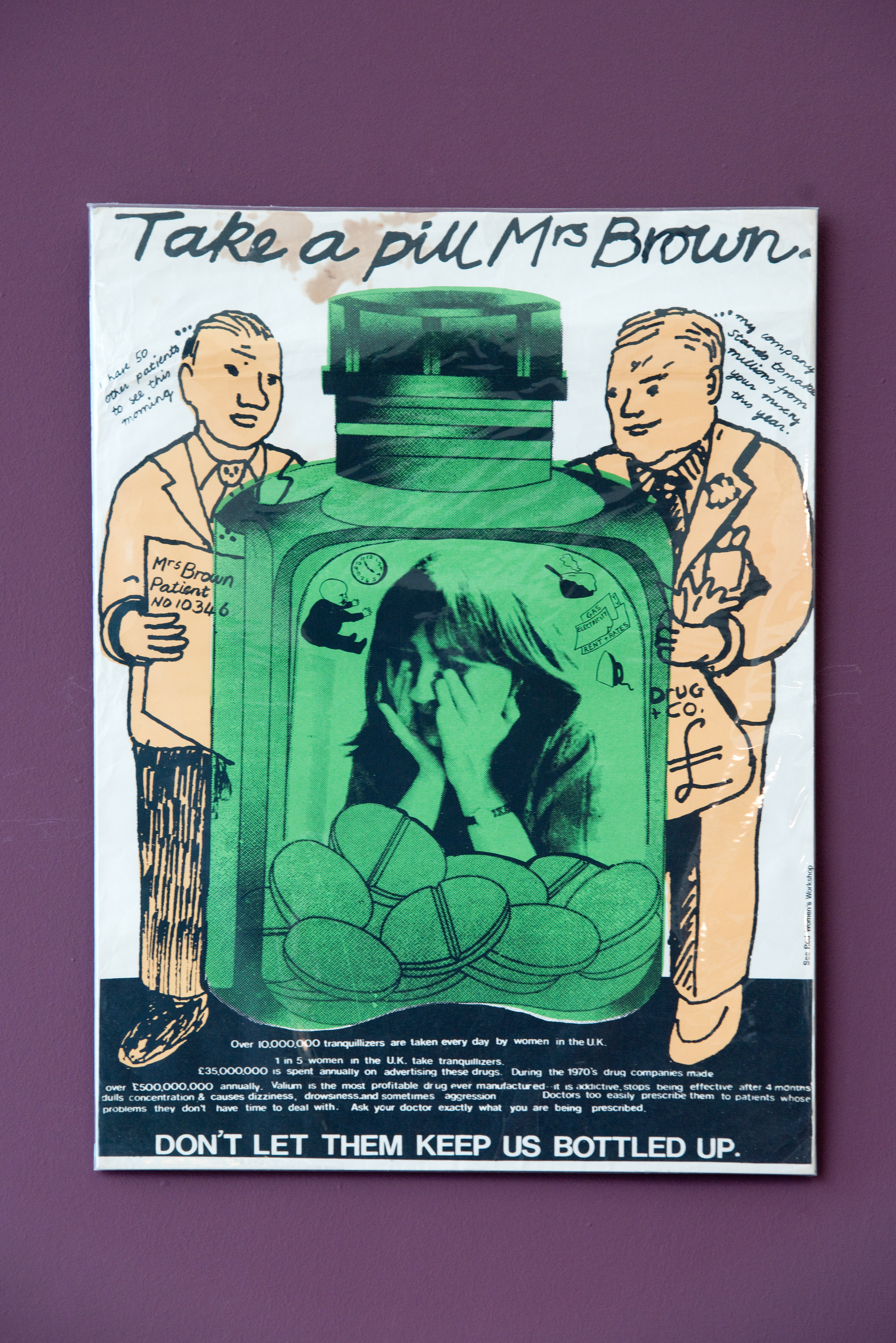
©: Colin Davison ww.rosellastudios.com
